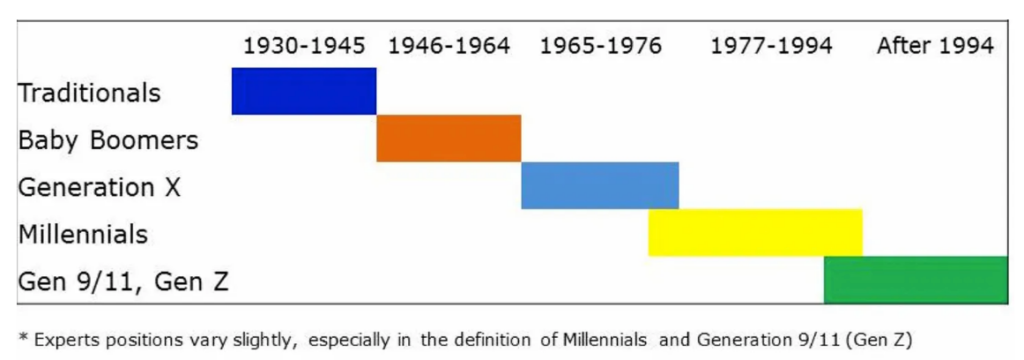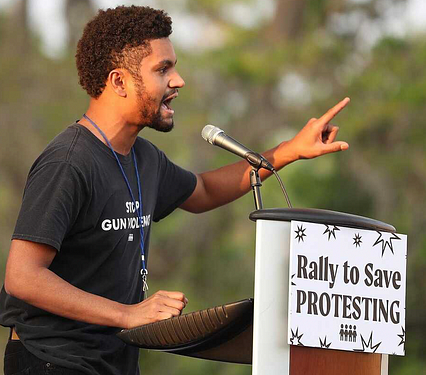Members of Generation Z (the demographic group under 25 years of age) are already making a serious global impact: they are leaving Russia by the hundreds of thousands to avoid military conscription.
Female Generation Zs are behind the current uprising against Iran’s oppressive theocracy. In China, they are attacked by officials because they lack the work ethic of previous generations and have been nicknamed “lying flat” kids. And in Western nations, Generation Zs are disproportionately “quiet quitting” (or slacking off at work) as well demanding remote work and shorter work weeks. In the United States, the first “Generation Z” individual is running for Congress and is ahead in the polls.
Frankly, once they take over the world won’t be the same, in partnership with “Millennials” (those under 42 years of age). Both are more progressive politically, more socially tolerant, and intend to be “child free” unlike their antecedents. Already, one in two Millennials have a dog or cat, and seven out of 10 Generation Zs told pollsters they will adopt a pet rather than have children.

Maxwell Alejandro Frost, 25, won the Democratic nomination in Orlando Florida and is a classic Generation Z: He is mixed race (Afro-Cuban), hasn’t finished college, drives an Uber to support himself, and is a community activist who refers to his generation as the “Mass Shootings Generation”. His slogan is “your success is my success and my success is yours”. His platform is to end gun violence, provide Medicare for all, transform the “racist criminal justice system”, and avert “the climate crisis”.
In the United States, one in four Generation Zs are Hispanic and 22% have at least one immigrant parent. By 2026, Generation Z will be the biggest cohort in American history and, for the first time, be mostly non-white, according to Census Bureau projections. By 2024 , the next U.S. Presidential cycle, they will represent one in ten eligible voters.
Generation Zs are tech savvy. Most got their first iPhones at age 12 and haven’t stopped looking at them ever since. The Generation Z and Millennial obsession about pets is why there are more clicks daily on photos and videos of dogs and cats than a decades’ worth of Super Bowl views. In America, Millennials spend more on their dog or cat than any other demographic spends on their pets and Generation Zs will undoubtedly overtake them eventually. Investors and entrepreneurs take note: The world’s first restaurant for dogs opened in San Francisco this month, called Dogue, and offers a $75 tasting menu and French-inspired pastries just for dogs. In South Korea, there’s now a chain of coffee shops that feature loose, tame exotic animals for petting.
Born between 1994 and 2012, Generation Zs grew up during the explosion of free trade, migration, and globalization and are the most tolerant cohort in America, sexually, politically, and racially. They believe governments are more trustworthy than the private sector, having lived through the Great Recession, the pandemic recession, and various other economic disappointments. In school and the media, they have been bombarded about the dangers of climate change and most say they don’t want to bring children into a world because they believe it may end during their lifetimes due to environmental degradation. Paradoxically, Generation Zs are not idealistic but pragmatic, as is Maxwell Frost, who grew up watching his immigrant parents struggle socially and financially.

Maxwell Alejandro Frost on the stump in Florida
One-third of Generation Zs lives at home, even if they have completed school and are working, to save money. Some struggle because the pandemic wiped out many of the starter jobs in hospitality that younger workers traditionally occupy. This economic context makes them security-minded but, even so, they are fussy. A Deloitte survey noted: “While salary is the most important factor in deciding on a job, Generation Z values salary less than every other generation. If given the choice of accepting a better-paying, but boring job, versus work that was more interesting but didn’t pay as well, Generation Z was fairly evenly split over the choice.”
Most are community-minded. “To win the hearts of Generation Z, companies and employers will need to highlight their efforts to be good global citizens. And actions speak louder than words: Companies must demonstrate their commitment to a broader set of societal challenges such as sustainability, climate change, and hunger,” wrote Deloitte.

Generation Z females lead the protest against Iran’s theocracy.
Millennials, those born between 1981 and 1994, have disproportionately postponed marriage (in countries around the world) and if they marry are having far fewer children than their predecessors. A growing proportion intend to remain “child-free”, as they put it. This reality is driving the Chinese government crazy because the country’s demographic ratio of old-to-young is out of whack and could prove fiscally ruinous in a couple of decades. They, and other governments like Hungary, are handing out bonuses to couples having more than two children.
Labeling and comparing inter-generational characteristics makes it easier to understand our children and grandchildren but also to forecast future business and political outcomes. Millennials and Generation Zs guarantee the demise of traditional media. They prefer streaming, YouTube, TikTok, and texting. They demand remote work, wherever possible, and are extremely fussy about where they settle. A recent study called “Better Than Your Childhood Bedroom” ranked America’s 45 largest cities based on Generation Z attractiveness criteria which included: Affordability, Generation Z population share, unemployment rate, internet speed, recreational and dining establishments, green commuting options, number of parks (for dogs), and high school enrolment.
Politically, most would likely agree with Maxwell Alejandro Frost’s platform, and demand more government involvement in solving problems, climate change remedies, same sex marriage, single parenthood, pro-choice, and a four-day week. For this and other traits, some have been dubbed them “Generation Nowhere” — but that’s a label that also was used to describe Millennials and Generation X. The fact is that Generation Z is not nowhere, but everywhere and they are already changing history. and will be in positions of power soon.
Reprinted with author’s permission from Diane Francis Newsletter on America and the World, https://dianefrancis.substack.com/about
The views expressed in this article are the author’s and not necessarily those of the Kyiv Post.
